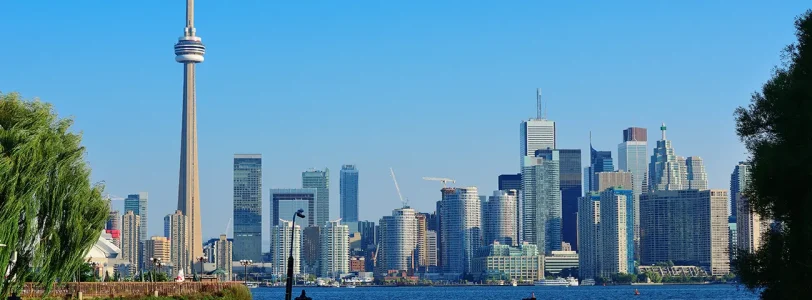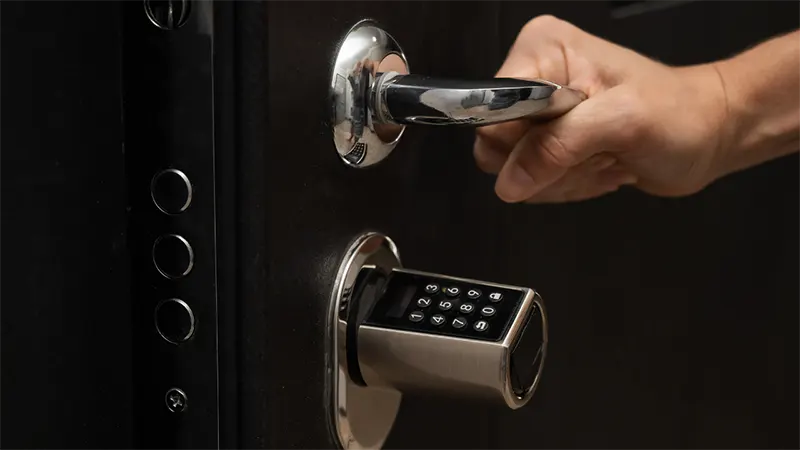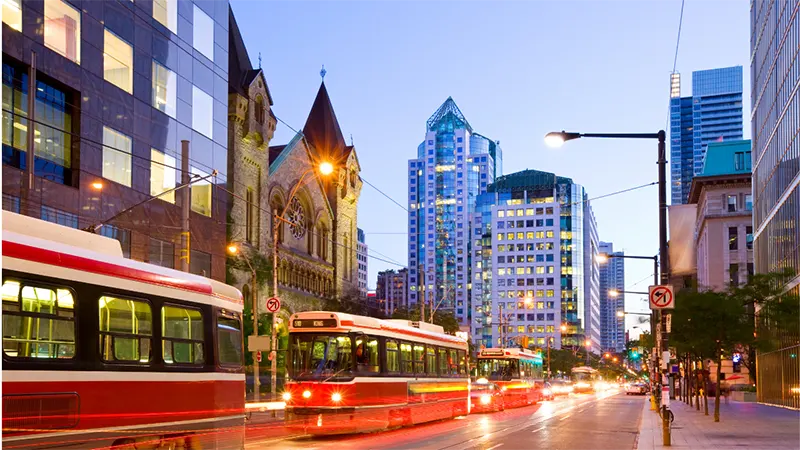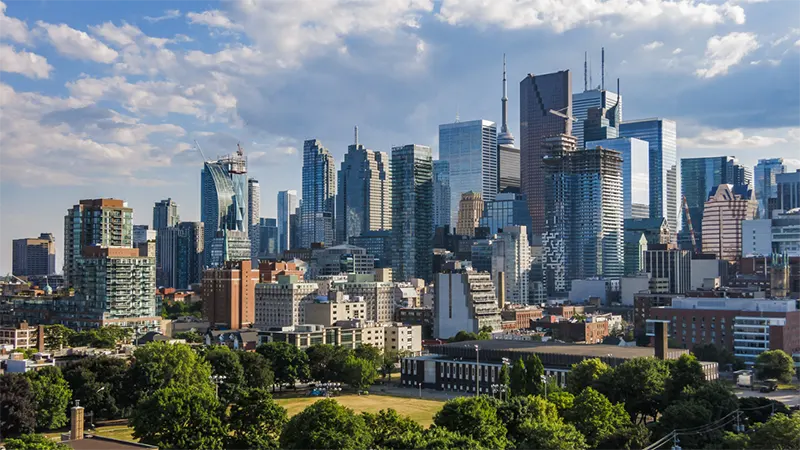The Toronto real estate market is dynamic and ever-evolving, offering diverse opportunities for property owners and investors. Among these opportunities, short-term rentals through platforms like Airbnb have gained popularity. However, with this surge in short-term rentals, the city of Toronto has implemented regulations to maintain housing availability and address potential issues. In this article, we’ll delve into the Airbnb rules in Toronto and provide insights on how to navigate them with the help of a knowledgeable Toronto real estate agent.
Understanding Airbnb in Toronto
Toronto is a prime location for short-term rentals due to its bustling tourism industry, business hubs, and vibrant culture. Many homeowners and investors have embraced Airbnb as a way to generate income from their properties. However, it’s essential to be aware of the rules and regulations in place to ensure compliance and avoid potential fines.
Key Airbnb Rules in Toronto
1.Primary Residence Rule
In Toronto, homeowners can only list their primary residence on short-term rental platforms like Airbnb. This means that if you own multiple properties, you can only rent out the one in which you primarily reside.
2.Registration and Licensing
Property owners must register their short-term rental with the city and obtain a license. The registration process includes providing proof of primary residence, insurance coverage, and other essential details.
3.Maximum Rental Period
Airbnb hosts can only rent out their property for a maximum of 180 nights per year. This rule aims to preserve housing availability for long-term renters.
4.Health and Safety Standards
Airbnb properties must adhere to specific health and safety standards outlined by the city. These standards cover aspects like fire safety, building codes, and zoning requirements.
5.Noise and Nuisance Regulations
Property owners are responsible for ensuring that their short-term rental guests do not disrupt the neighborhood with excessive noise or nuisance activities.
6.Fines and Penalties
Non-compliance with Airbnb rules can result in significant fines and penalties. It’s crucial for property owners to stay informed about the regulations and follow them diligently.
7.Municipal Accommodation Tax (MAT)
One of the most important financial requirements for Airbnb hosts in Toronto is the Municipal Accommodation Tax (MAT). This tax is calculated as a percentage of the booking amount and paid directly to the City of Toronto. As of June 2025 through July 2026, the MAT rate will increase to 8.5%. The purpose of this increase is to support city services and improve the management of the tourism industry. Hosts should make sure to factor this tax into their pricing and revenue planning.
8.Short-term rental licensing process
To legally operate an Airbnb or any short-term rental in Toronto, hosts must first obtain a license from the city. The application process is completed online and requires proof that the property is your primary residence. You will also need to provide identification, the property’s municipal address, and pay a licensing fee. Once approved, hosts receive a registration number that must be displayed in all listings. Without this license, your listing is considered illegal and may result in fines or removal from the platform.
9.Condo bylaws and building restrictions
Even if you are licensed by the city, your condominium corporation or building management may have additional restrictions on short-term rentals. Many condos in Toronto prohibit Airbnb-style rentals entirely, while others set strict limits such as a minimum rental period or requiring prior approval from the board. It is essential to review your condo bylaws or speak directly with your property manager before listing, as violating condo rules can result in legal disputes, financial penalties, or even losing the right to rent your unit.
10.Rules for Tenants
Airbnb regulations in Toronto apply not only to homeowners but also to tenants. If you are renting a property and want to list it on Airbnb, while the City of Toronto does not require you to provide written landlord consent to obtain the municipal license, you must comply with your lease agreement and the Residential Tenancies Act (RTA).
Short-term renting is generally viewed as subletting or a business activity, and without proper authorization from your landlord, you could face legal action from them (through the Landlord and Tenant Board), including fines or eviction.
Therefore, it is essential for tenants to clarify these conditions and obtain written permission from their landlord before attempting to host short-term guests, to protect themselves from legal disputes.
Tips for compliance and avoiding penalties
Staying compliant with Toronto’s Airbnb regulations is not just about avoiding fines—it also builds trust with guests and helps your rental run smoothly. Here are several best practices every host should follow:
First, always keep your short-term rental license active and updated. Remember that the city requires hosts to renew their license every year, and failing to do so could lead to immediate suspension of your listing. Make sure your registration number is visible on your Airbnb or other rental platform profiles, as inspectors routinely check for this.
Second, keep accurate records of your bookings and taxes. The Municipal Accommodation Tax (MAT) must be collected and remitted to the city. Having clear documentation of your reservations, payments, and tax submissions will protect you if the city requests an audit.
Third, pay attention to building and neighborhood rules. If you live in a condominium, follow all condo bylaws related to short-term rentals, including guest registration and use of common areas. Even in detached homes, respecting local standards on noise, garbage disposal, and parking will help you avoid neighbor complaints.
It is also recommended to carry appropriate insurance coverage. Many standard homeowner or tenant insurance policies do not cover short-term rental activity. Having specialized coverage protects you from liability in case of property damage, theft, or guest injuries.
Finally, maintain clear communication with guests. Provide house rules regarding noise, smoking, check-in times, and safety procedures before their arrival. Setting expectations early reduces the risk of disputes and helps ensure that both hosts and guests enjoy a positive experience.
By following these practices, hosts can avoid costly penalties, maintain a good relationship with the city, and create a safer, more professional rental environment.
Navigating Airbnb Rules with a Toronto Real Estate Agent
1.Legal Guidance:
A qualified Toronto real estate agent, like Ari Armani and his expert team members can provide you with insights into the legal aspects of short-term rentals in the city. They can help you understand the rules and regulations that apply to your specific property.
2.Market Knowledge:
They have an in-depth understanding of the Toronto real estate market. They can advise you on the potential for short-term rentals in different neighborhoods and help you make informed decisions.
3.Property Selection:
If you’re looking to invest in a property for short-term rentals, an expert can help you find a suitable property that aligns with the city’s rules and regulations.
4.Compliance Assistance:
Realtors can guide you through the registration and licensing process, ensuring that you meet all the city’s requirements to legally operate your Airbnb listing.
5.Market Trends:
With a good consultation you can stay up-to-date with market trends and Airbnb’s impact on property values. They can offer valuable insights into the potential returns on your investment.
The Best Airbnb Locations in Toronto
Toronto, Canada’s largest city and a global metropolis, boasts a diverse array of neighborhoods, each offering unique experiences for visitors and Airbnb guests. Choosing the right location for your Airbnb property is crucial for attracting guests and ensuring a successful hosting experience. In this article, we’ll explore some of the best locations for Airbnb listings in Toronto, helping hosts make informed decisions and cater to the diverse needs of travelers.
1. Downtown Toronto
Downtown Toronto is a bustling hub of culture, commerce, and entertainment. With iconic landmarks like the CN Tower and Ripley’s Aquarium, as well as proximity to theaters, museums, and world-class dining, it’s a prime choice for Airbnb hosts. Business travelers, tourists, and event attendees frequent this area.
Popular Neighborhoods: Entertainment District, Financial District, King West, Queen West
2. Yorkville
Yorkville exudes elegance and sophistication, making it a top choice for upscale Airbnb listings. The neighborhood is renowned for its luxury shopping, high-end dining, and proximity to cultural attractions like the Royal Ontario Museum (ROM) and the Gardiner Museum.
Popular Neighborhoods: Yorkville, Bloor-Yorkville
3. Queen Street West
Known for its artistic and bohemian vibe, Queen Street West is perfect for hosts aiming to attract creative and eclectic travelers. This neighborhood offers a mix of vintage shops, art galleries, and trendy boutiques. It’s a hotspot for hipsters and art enthusiasts.
Popular Neighborhoods: Queen Street West, Trinity Bellwoods
4. The Beaches
If you’re looking for a more relaxed and beachfront atmosphere, The Beaches neighborhood is a fantastic choice. It’s known for its beautiful sandy shores along Lake Ontario, a boardwalk, and a charming shopping and dining district.
Popular Neighborhoods: The Beaches, Beach Hill, Upper Beaches
5. Leslieville:
Leslieville combines a hip, urban feel with a sense of community. It’s known for its vibrant culinary scene, local breweries, and independent boutiques. It attracts travelers seeking a trendy, neighborhood experience.
Popular Neighborhoods: Leslieville, Riverside
6. Distillery District
The Distillery District is a pedestrian-only area with a historic charm that’s perfect for guests interested in art, culture, and dining. It’s home to galleries, theaters, artisan shops, and unique events.
Popular Neighborhoods: Distillery District
7. Kensington Market
Kensington Market is a cultural melting pot known for its eclectic mix of vintage stores, global cuisine, and vibrant street art. It’s a haven for budget-conscious travelers and those seeking a bohemian atmosphere.
Popular Neighborhoods: Kensington Market, Chinatown
8. Little Italy
Little Italy offers a taste of authentic Italian culture with an array of trattorias, gelato shops, and lively street festivals. It’s ideal for travelers interested in exploring diverse cuisines and enjoying a lively atmosphere.
Popular Neighborhoods: Little Italy
9. Liberty Village
Liberty Village is a trendy, modern neighborhood known for its loft-style condos, tech startups, and a variety of dining and shopping options. It appeals to business travelers, young professionals, and those attending events at Exhibition Place.
Popular Neighborhoods: Liberty Village
10. High Park
Nature enthusiasts and families may prefer High Park, known for its vast green spaces, gardens, and the Toronto Zoo nearby. It’s a serene escape from the city’s hustle and bustle.
Popular Neighborhoods: High Park, Roncesvalles
Conclusion
In conclusion, while Airbnb offers a promising income opportunity in the Toronto real estate market, it’s essential to navigate the city’s regulations effectively. Partnering with a knowledgeable Toronto real estate agent can help you understand and adhere to Airbnb rules, ensuring a successful and compliant short-term rental experience. By following the rules and working with professionals, you can tap into the lucrative Airbnb market in Toronto while maintaining a strong reputation as a responsible property owner or investor.
Selecting the best location for your Toronto Airbnb property depends on your target audience and the type of experience you want to offer. Understanding the unique characteristics of each neighborhood and catering to travelers’ preferences will help you create a successful and sought-after Airbnb listing in this diverse and vibrant city.
![RLPS Logo-V [1Col RGB]-01 RLPS Logo-V [1Col RGB]-01](https://armanigroup.ca/wp-content/uploads/elementor/thumbs/RLPS-Logo-V-1Col-RGB-01-ohdkdw2fqtxwk9umk2c95d4sl5au0r49wgcs41fj7k.png)





